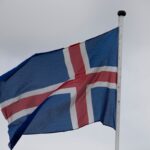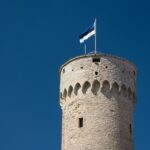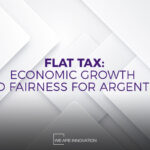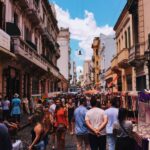What can they learn about competition, free trade, regulation, and innovation from Messi and his team?
Argentina’s triumph in the World Cup organized by Qatar has given Lionel Messi the last trophy he was missing. The achievement of the Argentine national team has also left several lessons that can be extrapolated far beyond football.
Here are two lessons that decision-makers can learn from world champions:
1. Competition makes us better
Before the World Cup in Qatar, the statements made by the then-coach of the Spanish National Team, Mr. Luis Enrique Martínez García, generated a lot of controversies. Asked if he considered it a deficit to have faced only European teams since 2018, Luis Enrique answered emphatically: “I don’t think so, I really don’t. I don’t think we need to play against teams from another continent. I don’t think we need to play against teams from another continent”.
At the World Cup, Spain lost to Japan in the group stage and was eliminated by Morocco in the Round of 16. For his part, Luis Enrique was forced to step down as coach.
The European Union (EU) would do well to avoid UEFA’s isolationist and Eurocentric tendencies if it avoids similar outcomes.
For example, despite its undeniably good intentions, recent news of an import tariff based on carbon emissions points more to an anti-trade excuse than a genuine environmental concern. Indeed, economists such as Philipp Bagus have warned of isolationist tendencies within the EU. According to Bagus, Brussels plays a double game in which the EU acts outwardly as a protectionist fortress and an interventionist empire inwardly.
On the contrary, the EU must ensure a free trade and competition framework that benefits all its citizens. The enemies of international trade forget that competition is not merely rivalry; it is also cooperation. By competing, rivals help each other improve and achieve the best version of themselves. Or as the philosopher Immanuel Kant explained it with his famous metaphor of the forest:
“Trees in a forest, by seeking to deprive each other of air and sunlight, compel each other to find these by upward growth, so that they grow beautiful and straight—whereas those which put out branches at will, in freedom and in isolation from others, grow stunted, bent and twisted.”
2. Fostering talent
German footballer Philipp Lahm, who captained the 2014 World Cup-winning team, writes regularly for the English newspaper The Guardian. Ahead of the Quarterfinals, he stressed that:
“Scaloni has been thinking about how to integrate the extraordinary class of 35-year-old Lionel Messi,” he said. In an interview with the Süddeutsche Zeitung, he told how he deliberately dispensed with Messi at the beginning of his time in charge so that the team would find its way without the star. Then he integrated him.
“Argentina and Messi have found an unusual and exciting division of labor. In 2014, when they lost to us in the Maracanã final, his teammates seemed to be waiting for him to solve everything on his own. In 2022, they are playing for him and he is biding his time. Such stories produce added value beyond the sporting.”
Europe and the EU have things to do to make life easier for creators and entrepreneurs.
A crucial case in point is Artificial Intelligence (AI). Innovation experts such as Adam Thierer warn that:
“The key to competitive advantage in AI will be openness to entrepreneurialism, investment and talent, plus a flexible governance framework to address risks.
“The International Economy Journal recently asked 11 experts from Europe and the U.S. where the EU currently stood in global tech competition. Responses were nearly unanimous and bluntly summarized by the symposium’s title: ‘The Biggest Loser.’ Respondents said Europe is ‘lagging behind in the global tech race,’ and ‘unlikely to become a global hub of innovation.’ ‘The future will not be invented in Europe,’ another analyst concluded.
“This bleak assessment is due to the EU’s risk-averse culture and preference for paperwork compliance over entrepreneurial freedom. After the continent piled on layers of data restrictions beginning in the mid-1990s, innovation and investment suffered. Regulation grew more complex with the 2018 General Data Protection Regulation (GDPR), which further limits data collection and use.”
European decision-makers would do well to remember that problem-solving should be left to imaginative responses rather than regulations and prohibitions that hinder and stifle entrepreneurship.
Regulation is necessary. But only for a minimum safeguard of the population. Regulation can never play the leading role in the innovation process. According to Jeff Stier’s analogy, if we were preparing a cocktail, the recipe would be nine parts innovation and one part regulation.
If it reverses these proportions, the EU will make another type of cocktail: a Molotov cocktail.
* Federico N. Fernández is Executive Director at Somos Innovación (a Latin American pro-innovation alliance) and CEO at We Are Innovation (Somos Innovación’s sister organization for Europe). Federico is Founder and President of Fundación Internacional Bases (Rosario, Argentina) and also the Chairman of the Organizing Committee of the International Conference “The Austrian School of Economics in the 21st Century,” which takes place in Europe and LatAm alternatively.
Source: We Are Innovation











